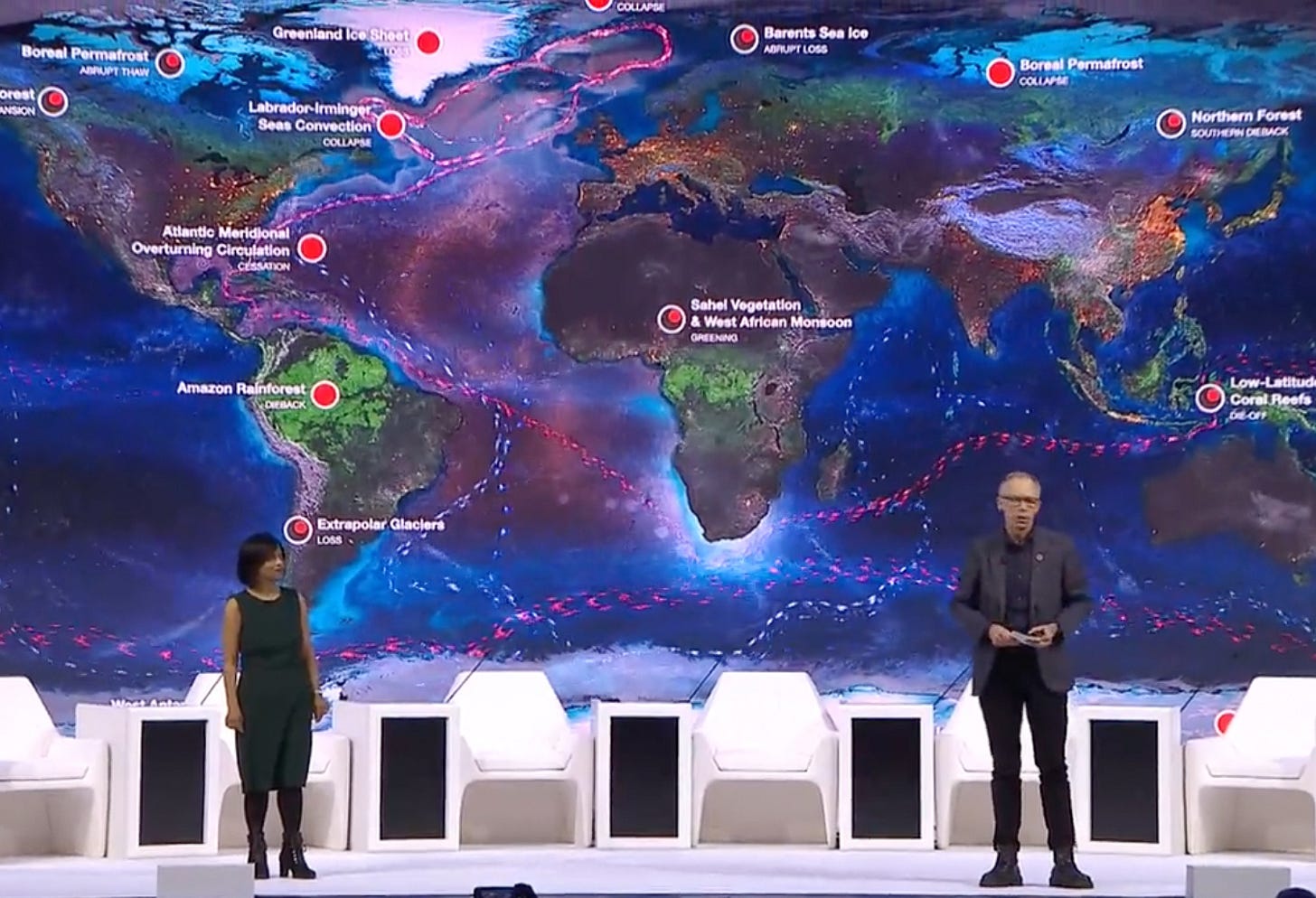WEF Promotes Scientist Behind False "Billions Will Die" From Climate Change Claim
Johan Rockström also promoted debunked "planetary boundaries" hypothesis

The World Economic Forum in Davos just heard from Johan Rockström, Director of the Potsdam Institute for Climate Impact Research. Rockström claimed that there are “16 biophysical systems… that regulate the entire climate system on Earth” and that “nine of these 16 are showing signs of instability. Push them too far, and they will shift over from supporting humanity to starting to undermine humanity.”
Rockström is referring to something called the “planetary boundaries hypothesis,” which I debunked with a team of others over 10 years ago. While the United Nations, Oxfam, and WWF embraced the hypothesis, it is so scientifically flawed and misleading to be junk science.
There are, to be sure, real biophysical thresholds in the global climate system, and partly also for ocean acidification, ozone depletion, and phosphorous levels. But six of the “planetary boundaries” are not actually “boundaries” in any meaningful sense. They are biodiversity loss, nitrogen levels, land-use change, aerosol loading, freshwater use, and chemical pollution.
As such, there are no “global tipping points” at which point various ecological processes stop functioning, or function in fundamentally different ways. Setting boundaries for those mechanisms is thus a wholly political and Malthusian exercise. “A lax boundary may result in more degradation,” we noted. “A strict boundary less. But there is no evidence that exceeding the boundary will result in a fundamentally different magnitude of impacts associated with human activities.”
And there is little evidence, we noted, to support Rockström’s claim that transgressing the boundaries would have an overall negative impact on humankind
Again, there are good reasons to limit human development to protect ecosystems. But doing so usually has positive and negative and impacts, and the net benefit varies. And the claim that there are hard limits and “tipping points” is an abuse of science and power.
What’s more, Rockström isn’t just wrong about “planetary boundaries,” he’s also wrong about climate change’s impact on food supply.
As it turns out, I debunked him a second time in 2020. Here’s what happened.
Wrongström Again




